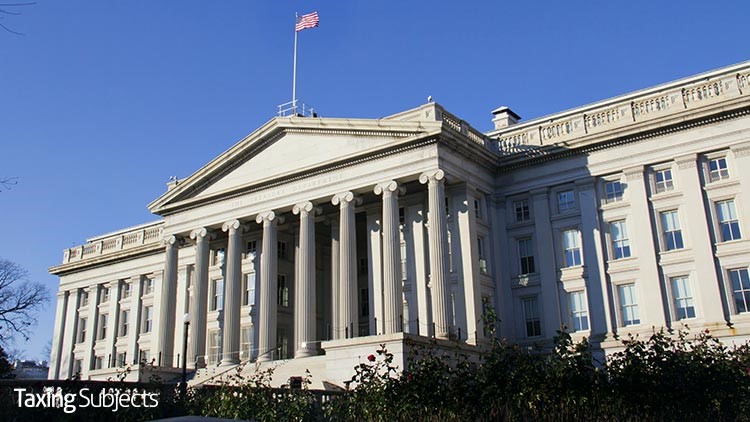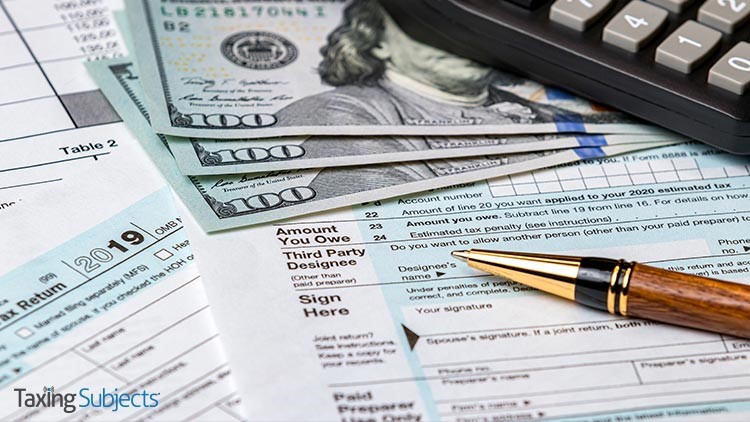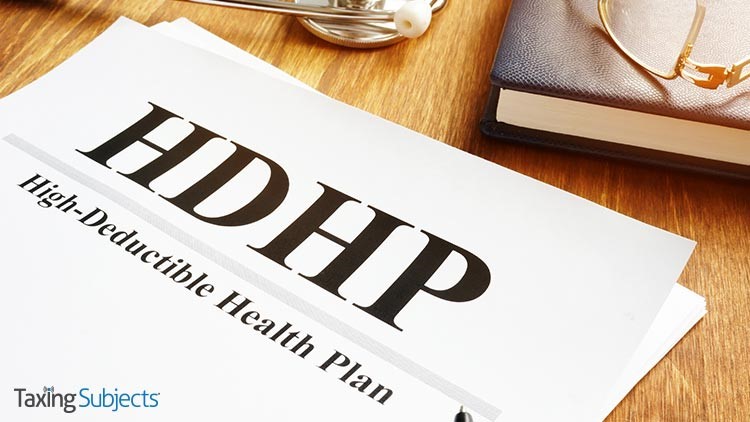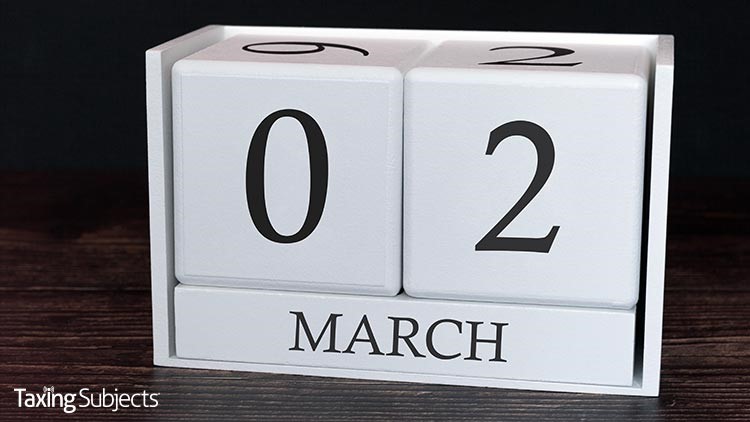by | Mar 21, 2020 | Tax Tips and News
Last Updated: March 20, 2020 at 6:19 p.m.
Treasury Secretary Steven Mnuchin announced on Friday, March 20, 2020 that the federal filing deadline was being moved to July 15, 2020 due to the COVID-19 outbreak. State departments of revenue are expected to follow suit, so we have begun building a list of affected state individual income tax return deadlines. We will update this list as we receive new information.
Note: We are including quotes from the departments of revenue that have announced the intention of extending the deadline, but have not yet published an official date. Those states that do not have a firm date will include an “expected individual income tax deadline.”
- Alabama
“The Department plans to mirror these return filing extensions as appropriate and enter corresponding taxpayer relief orders. Please monitor the Department’s Newsroom for updates.”Expected Individual Income Tax Deadline: July 15, 2020
- CaliforniaIndividual Income Tax Deadline: July 15, 2020
- Connecticut
“Individuals in the process of preparing their Connecticut income tax (Form CT-1040) returns due April 15, should be advised that DRS will adjust due dates for filing and payment of state income taxes to align with any specific, actionable announcement from the Internal Revenue Service regarding due dates for the filing and payment of federal income taxes.”
Expected Individual Income Tax Deadline: July 15, 2020
- Indiana
“DOR is closely monitoring the IRS on possible changes to filing and payment due dates and will be prepared to follow suit.”
Expected Individual Income Tax Deadline: July 15, 2020
- Iowa
Individual Income Tax Deadline: July 31, 2020
- Maryland“If the IRS extends its April 15th filing deadline for corporate and individual income tax returns, Maryland will conform to the decision of the IRS.
Expected Individual Income Tax Deadline: July 15, 2020
- Massachusetts
“In the event the Internal Revenue Service (IRS) issues tax relief to taxpayers with federal filing obligations, DOR is prepared to follow the IRS in offering similar relief for taxpayers with Massachusetts tax filing obligations.”
Expected Individual Income Tax Deadline: July 15, 2020
- North Carolina
“The NCDOR is mirroring this payment extension to the greatest extent possible under current state law. While the NCDOR is waiving late payment penalties through July 15, state law prevents waiving any interest.”
Expected Individual Income Tax Deadline: July 15, 2020
- Oregon
“If the IRS declares the April 15th due date to be extended due to the COVID-19 pandemic, Oregon will automatically connect to those dates for personal income tax filers.”
Expected Individual Income Tax Deadline: July 15, 2020
- South Carolina
“Tax returns and payments due April 1 – June 1 will now be due June 1, 2020. Penalty and interest will not be charged if payment is made by June 1.”
Individual Income Tax Deadline: June 1, 2020
– Story provided by TaxingSubjects.com
by | Mar 20, 2020 | Tax Tips and News
Tax Day is now July 15!
Treasury Secretary Steven Mnuchin announced on Twitter that taxpayers now have an additional 90 days to file their tax returns.
On Tuesday, March 17, 2020, Mnuchin announced in the president’s coronavirus task force press conference that individuals owing up to $1 million and corporations owing up to $10 million would have an additional 90 days to pay their taxes. This latest announcement (March 20) sets both the filing and payment deadlines to the same day, removing any potential Tax Day confusion.
Mnuchin today wrote, “At @realDonaldTrump’s direction, we are moving Tax Day from April 15 to July 15. All taxpayers and businesses will have this additional time to file and make payments without interest or penalties.” One minute later, he echoed a recommendation from the Tuesday presser: “I encourage all taxpayers who may have tax refunds to file now to get your money.”
These latest delays are in direct response to concerns over COVID-19, the coronavirus outbreak that has led to school and business closures across the country. For the latest COVID-19 announcements, be sure to check the “Coronavirus Tax Relief” page on IRS.gov and the “How to Protect Yourself” page on CDC.gov.
Source: Twitter (@stevenmnuchin1)
– Story provided by TaxingSubjects.com
by | Mar 19, 2020 | Tax Tips and News
Taxpayers now have more time to PAY, but the deadline to FILE has not yet changed.
COVID-19 has disrupted daily life for taxpayers across the country. Whether due to school closures or businesses shutting down, change is the one thing that feels inevitable. In a Tuesday press conference held by President Trump’s coronavirus task force, Treasury Secretary Stephen Mnuchin outlined one more change: the tax payment deadline.
According to Mnuchin, individuals whose tax bill doesn’t exceed $1 million will have an additional 90 days to pay, and corporations can defer up to $10 million. He also assured that these deferred payments will be interest and penalty free. This development comes a week after the House Ways and Means Committee sent a letter to the IRS requesting a recommendation about delaying tax-related deadlines.
An important distinction to note is that the tax return filing deadline has not been changed. Taxpayers are still expected to file by the April 15 deadline. One potential reason for maintaining the current deadline could be that Treasury recognizes the importance of taxpayers receiving refunds—especially in light of many being forced to self-isolate.
“Most Americans will get tax refunds,” Mnuchin said, “and we don’t want you to lose out on those tax refunds, and we want to make sure you get them.” Indeed, the financial health of many taxpayers hinges on receiving a tax refund, so delaying that money while possibly being out of work for several weeks could could pose a significant financial hardship. Further, he recommended filing electronically to get any refunds owed as soon as possible.
All current information related to the impact of COVID-19 on the American tax system can be found on the IRS.gov “Coronavirus Tax Relief” webpage, which includes links to statements for the payment deadline extension, high-deductible plans being allowed to cover COVID-19 costs, and more.
Source: “Coronavirus Briefing”; “Payment Deadline Extended to July 15, 2020“
– Story provided by TaxingSubjects.com
by | Mar 16, 2020 | Tax Tips and News
With the United States beginning to feel the effects of the coronavirus pandemic, many taxpayers will have to confront another harsh reality: how to pay for the advanced medical care that could be needed to save their lives.
Some help on that front comes from an IRS ruling that says high-deductible health plans, known as HDHPs, can indeed pay for related testing and treatment of the 2019 Novel Coronavirus known as COVID-19, without jeopardizing the status of the plan.
The ruling also means an individual with an HDHP that covers coronavirus costs may continue to contribute to an HSA or health savings account.
The IRS decision is outlined in Notice 2020-15, which has been posted on IRS.gov. The agency says health plans otherwise qualifying as HDHPs won’t lose that status just because they cover the cost of testing or treatment related to COVID-19 before deductibles have been met. As in the past, any vaccination costs continue to count as preventive care and can also be paid by an HDHP.
It should be noted that Notice 2020-15 applies only to HSA-eligible HDHPs. Employees and other taxpayers in any other kind of health plan should contact their plan administrators or providers with any specific questions about what their plan covers – and doesn’t.
– Story provided by TaxingSubjects.com
by | Mar 13, 2020 | Tax Tips and News
IRS Direct Pay can help taxpayers avoid an estimated tax penalty.
If any of your clients make two thirds of their gross income from farming or fishing, they may need to file a Form 1040 and pay tax due on Monday. Affected taxpayers who miss the deadline could owe an estimated tax penalty.
The IRS recently issued a press release reminding farmers and fishermen about the March 2 filing and payment deadline for those who do not make quarterly estimated payments throughout the year. (The deadline for farmers and fishermen who make estimated payments is April 15.)
To simplify the process, the IRS says that farmers and fishermen who need to meet next week’s deadline can make a payment with IRS Direct Pay: “Anyone can use this free online service to quickly make federal individual income tax payments or quarterly estimated tax payments directly from their checking or saving account.” The agency also stressed that there are no signup fees or pre-registration requirements, making it even simpler.
While taxpayers can use IRS Direct Pay to settle their individual income tax bill, it will not accept payments for “federal highway use tax, payroll taxes, or other business taxes.” To make those payments, the IRS suggests using the free Electronic Federal Tax Payment System.
For more information about taxes for farmers and fishermen, the IRS provided two links: Tax Topic 416 and Publication 5034.
Source: IR-2020-37
– Story provided by TaxingSubjects.com





